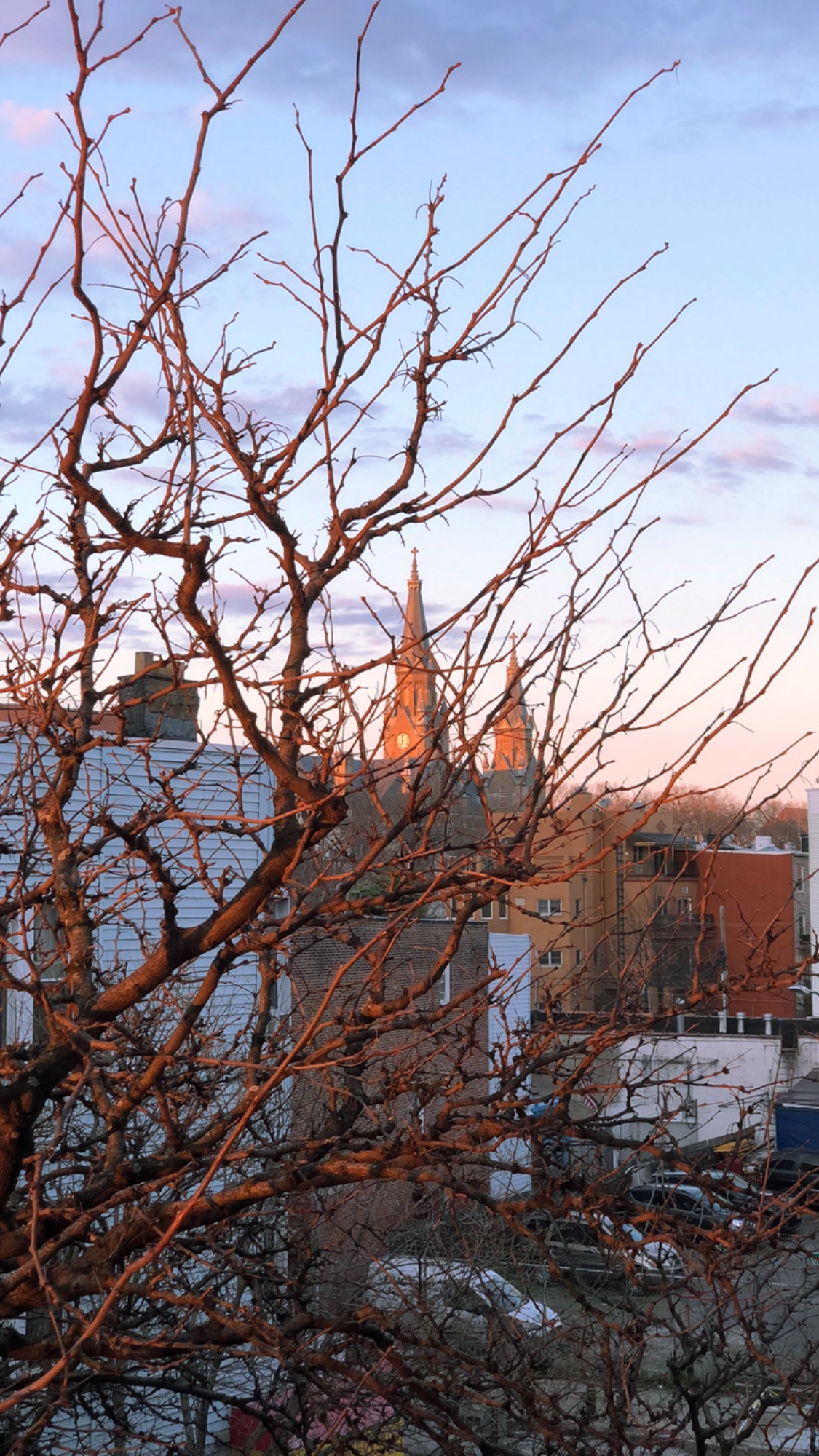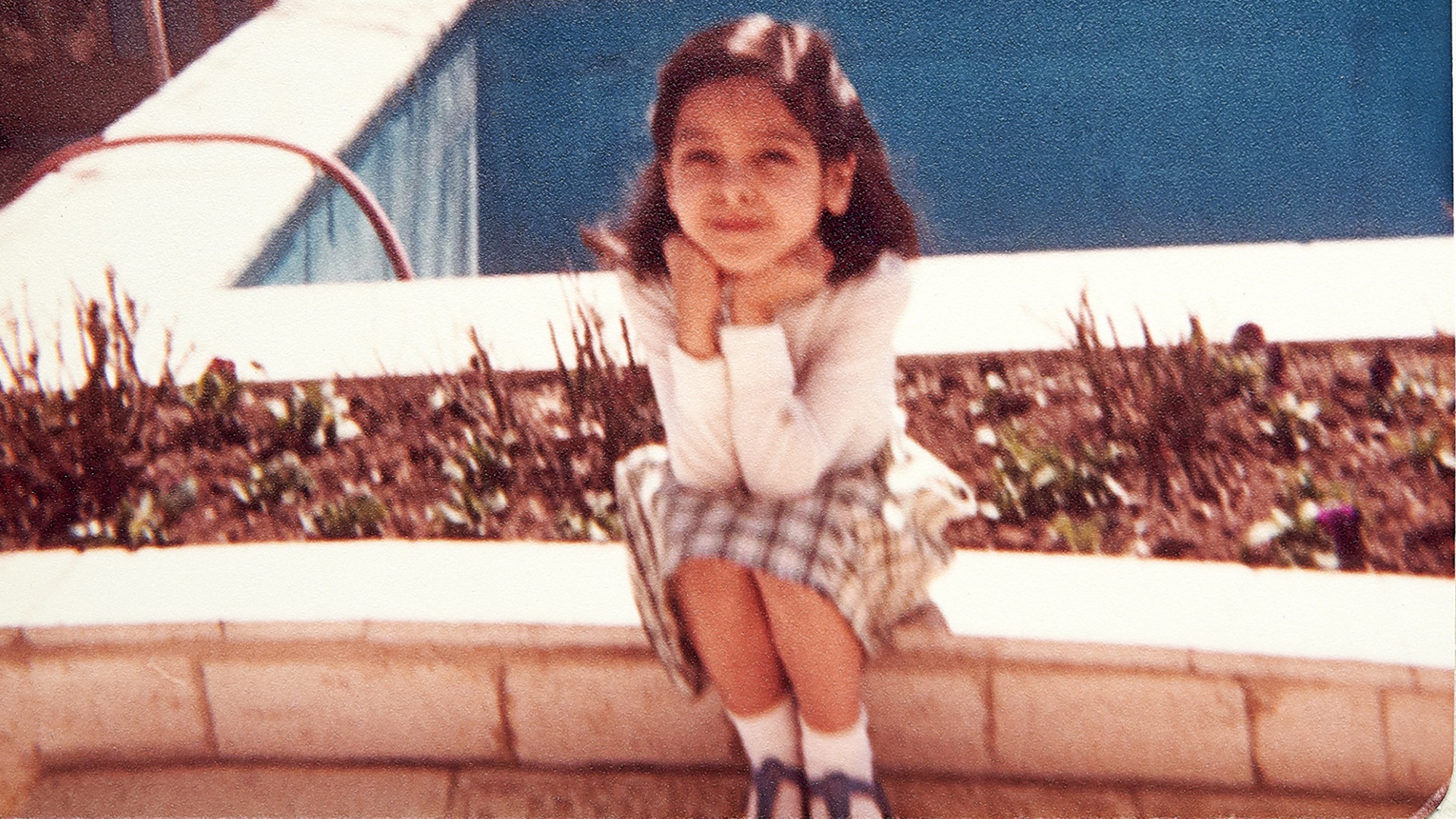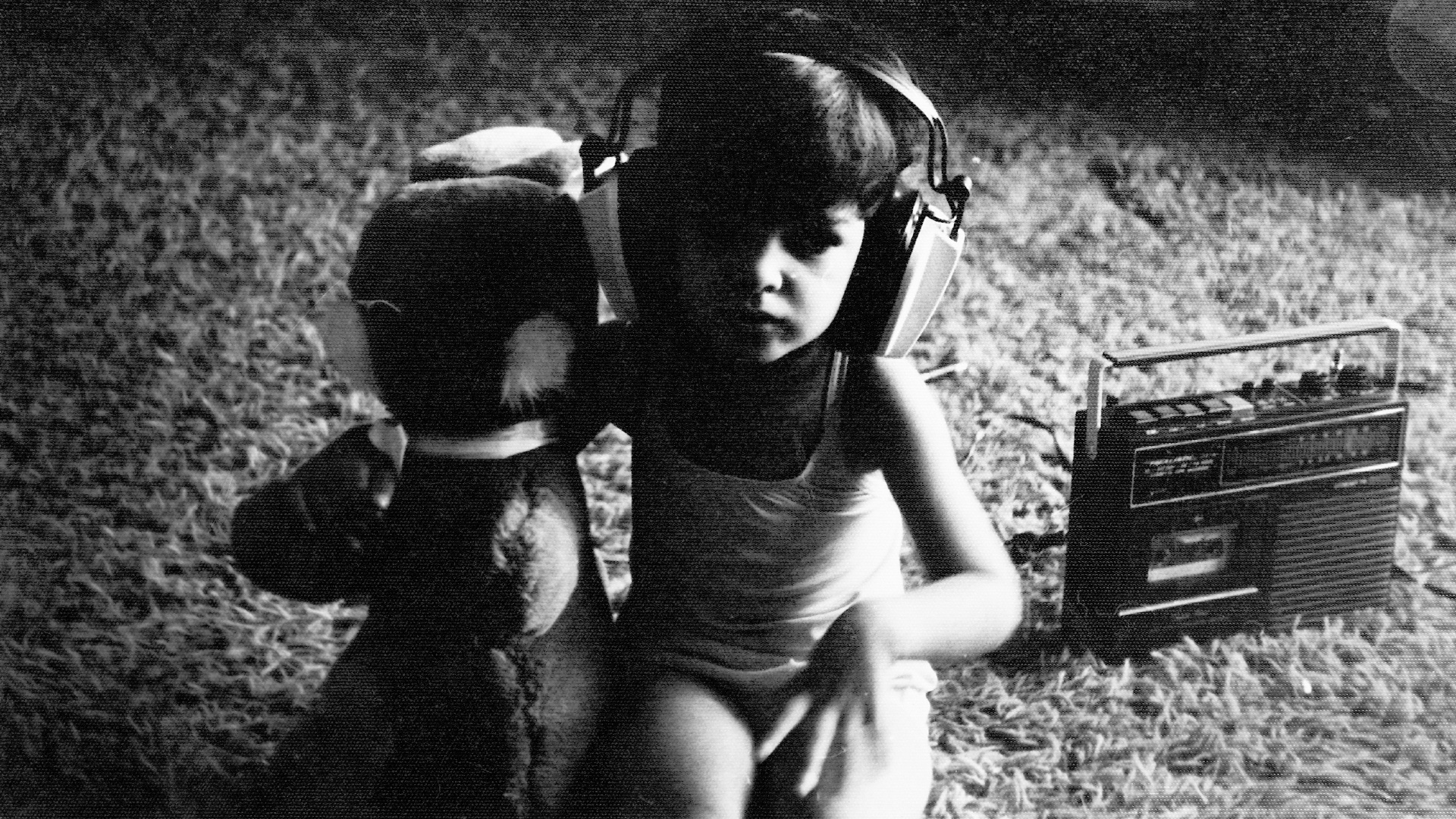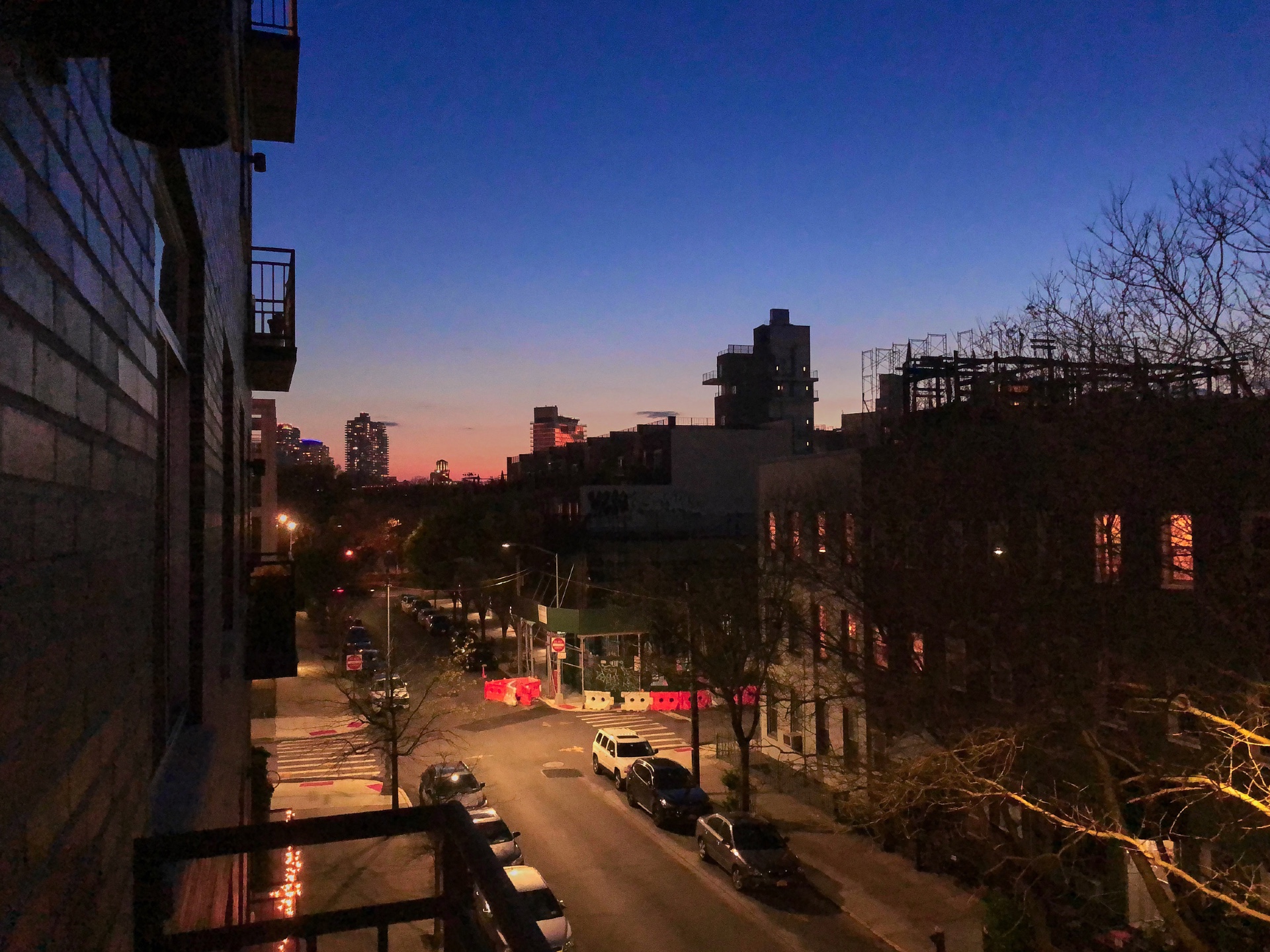From Iran to the US: Songs in times of war and coronavirus
From 1980s Tehran to 2020 New York, a writer reflects on the power of music and togetherness in times of crisis.
![Illustration: Sounds of the ordinary: Songs in times of war and coronavirus[Jawahir al-Naimi/Al Jazeera]](/wp-content/uploads/2020/05/4c4efdce05eb489d99af0fb83bcf08b7_18.jpeg?resize=770%2C513&quality=80)
I stand behind the French glass doors to the Juliet balcony of our New York apartment. Outside, the low sun signals its impending shift to another part of the globe and three storeys below a couple walks on the street holding disposable coffee cups, as though it is a normal day.
In many ways it is a day like any other: the structures in our Brooklyn neighbourhood are intact, workers in orange vests and hard hats are cutting up the pavement to lay new cables, and there are hints of green buds on a tree whose dark branches have become our seasonal entertainment.
Keep reading
list of 4 itemsMexico’s teachers seek relief from pandemic-era spike in school robberies
‘A bad chapter’: Tracing the origins of Ecuador’s rise in gang violence
Why is the US economy so resilient?
“Look, look, a dove,” I say to my husband Anthony, who is working at his desk in the living room. I know how much he likes mourning doves. As far as birds go, I am impartial to their muted brown and grey palette, but their visit is yet another sign of routine, of birds being birds.
And these days, we are all looking for the ordinary.
Anthony looks up and out to the railing, smiles and goes back to work. The dove takes wing and disappears but I stay upright behind the glass, yearning for more signs of normal. Another bird – even a bland dove – would be nice, but what I am really hoping is for the Phil Collins guy to drive by.

Only once, last year, did I see him ride down our street. On a particularly nice day, when the sky was a brilliant blue with threads of cloud painted by the wind, and my balcony doors were wide open, his grey car blew through the sunny day and out of his windows the bass of Phil Collins’ “In the Air Tonight” filled our street’s airwaves for seconds – hypnotic drum machine beats, piano chords and distorted guitar building until the song burst into the iconic drum solo.
My pulse quickened and I could not decide whether to grab my phone to video him or stand there and enjoy the moment before he left the intersection.
I decided to take it in in real time.
Up until then, I had only heard about the Phil Collins guy and seen videos of his drive-bys in an online neighbourhood forum. Tracking him has become part of our local culture, especially for those of us with street-facing windows.
In posts, members of the online group alert one another to the real-time location of the Phil Collins guy and the direction he is heading in. He is so popular that there are even copycats. To that effect, posts now specify if the sighting is of the original Phil Collins guy.
Both the war and pandemic started slowly
On the phone, my mother, one state over, is upbeat. Like us, she has been in isolation for weeks.
“It’s not any worse than the war,” she says, referring to the eight-year Iran-Iraq war, six years of which we endured.
“We don’t have to go to the basement in case of a bomb drop. We just sit home.”
My mind travels back a few decades, to Tehran. For the first time, I think about the two experiences as parallels, about how both the war and pandemic started so slowly – one bomb at the onset, then several; a positive case in one state, then another – that no one believed either event to really be occurring. And then, one day, life as we knew it had been upended. Everything routine dissipated into ether.

The war started in 1980 – when I was just four – and ended eight years later. I left the country some two years before Iran accepted a United Nations-negotiated ceasefire.
Like my friends and classmates, we grew into, and became part of, the stitches of the conflict’s landscape, often not questioning the life it asked of us.
By 1984 the strategic bombings against our cities began, and Tehran became a raid target. The days went on as usual: We attended school, played on our tree-lined, residential street in the afternoons and even visited the neighbourhood burger joint when our allowances added up to a meal.
Once the inverted bowl of the sky was shimmering with stars, however, our world became unpredictable. Raids were possible at any moment; late in the evening, deep into the night, when I was often dreaming of a book or a song, and just before the first photons poured down from the yellow orb that erased it all.
From Laura Branigan to Phil Collins
“In the Air Tonight” was released in 1981 but the song was not in my handful of mix tapes or any friends’ music collections. Maybe we were too young to know of it or the single had not made it to Tehran’s black market of copied cassettes.
Michael Jackson’s album “Thriller” and its title song were all the rage but I do not recall having any of his music, either. Instead, my best friend and I spent our free time coming up with dance routines to a Laura Branigan cover of Raf’s “Self Control”.
In the afternoons, I would stick the tape in our household’s handheld Sony cassette player and press down the “play” button. Out of the small built-in speaker emanated the sound of drum machine beats set to 4/4 time, combined with synthesiser and guitar, followed by vocals:
Oh, the night is my world
City light painted girl
In the day nothing matters
It’s the night time that flatters
In the night, no control
Through the wall something’s breaking
Wearing white as you’re walkin’
Down the street of my soul
You take my self, you take my self control
You got me livin’ only for the night
Before the morning comes, the story’s told
You take my self, you take my self control

The strong high-altitude sun stretched out to every corner of the living room, Z and I, wearing T-shirts and shorts, would arrange and shift our stick-thin legs and arms in what we thought were coordinated dance moves, emulating English words we did not understand and likely only getting the Oh, oh, oh, oh, oh, oh, oh, oh, oh, oh, oh, oh, Oh, oh, oh (Oh, oh, oh, oh, oh, oh, oh, oh, oh) parts right.
Eyes closed and one shoulder up at a time, we were electrified into movement by the tune for close to three minutes until our big finish: Z standing with her legs wide while I slid on my knees and skidded between them (we rotated between the stander and slider so we could each enjoy the spotlighted moment of the slide).
Rug burns on our boney knees, I would rewind the tape to the beginning and we would do this over and over again because we were kids and in the daytime we were allowed to be.
The pandemic is elusive
While the effects of the war run deep, indelible in the folds of every muscle, that experience does not register the same as this pandemic for me.
I had been in grade school, protected by the sense of invincibility parents provide, and thus shielded from the rations, empty supermarket shelves, statistics, logistics and continual decision making. And daily life remained routine – school, playtime, birthday parties and meals went on as scheduled, as if we did not have to run to the basement when the sirens sounded off, as if the bombs were not dropped once the city went dark, as if the destruction was not imminent, or concrete.
Maybe that is what it is. Maybe it was the concreteness that made sense.
The pandemic is illusive, an invisible force that permeates every space and lurks on every surface, each small indentation, the person you love, each kiss, the air of a passing breeze. Or maybe it is something else.
Like many, I sleep little these days and in one of my countless recent wakeful moments, I realised that on those nights my parents and I sheltered in the basement, surrounded by bags of rice, dried bread and beans, we had something we are unable to surround ourselves with now – each other.
And Z and I were not denied the shared experience of “Self Control”, or the chance to grab each other’s hands and ceremoniously pull one another up after the big knee-slide on the rough, thin carpet. Together, we sang like we knew what we were singing, the locks of our badly cut hair swinging up and down with our bouncing heads, enjoying the groove at the same time.

On the online neighbourhood forum someone posts a new sighting of the Phil Collins guy. In the corresponding comments another person notes spotting him minutes later.
People were clapping, this person writes. He is doing the Lord’s work right now, another commenter says in a separate post.
I stand up from my desk and go to our bedroom window. Above, the sky is cobalt blue and then pink where it falls behind the buildings in view. But my eye is on the grey, ordinary street, knowing he is circulating out in the neighbourhood, giving us what we need so much at this time, not just momentary delight but a sense of togetherness in experiencing the same music.
Window open now, I feel a light and chilly breeze push against my face. I close my eyes and can feel it … “coming in the air”.